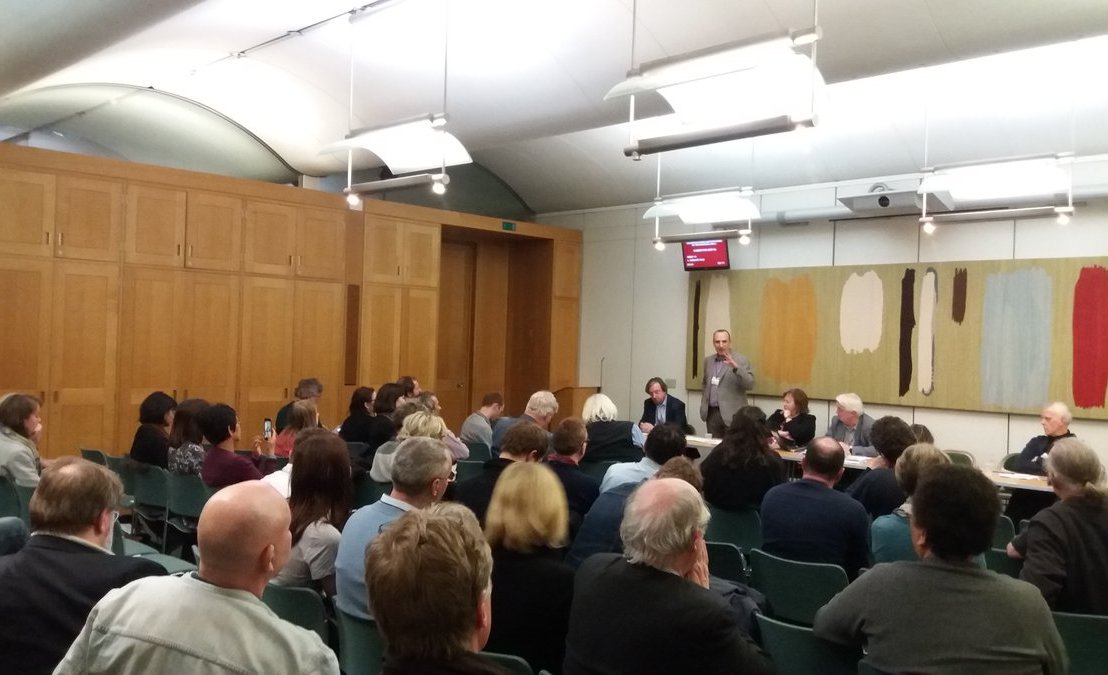The launch of the Alliance for Free Movement (AFM) last month provided the opportunity for people involved in post-referendum initiatives to explain their campaigning work so far.
The Alliance itself has come about on the initiative of people with a lengthy history of trade union activity. They were frustrated with the fact that so much of the political establishment – both left and right – has given up on arguments about the positive role free movement of people in the EU has played over forty years.
Chairing, former deputy general secretary of the PCS, Hugh Lanning[i] opened the session by setting out how people who favour internationalism can be rallied to try to win the argument in favour of open borders while the UK negotiates Brexit in the next few years.
Experience
Green MP Caroline Lucas best summed up the challenges when she pointed out that, from the standpoint of the mass of public opinion, we have spent the last few years losing most of the crucial arguments in favour of the free movement of people. Unless we get a better sense of why this is, we will continue to be on the losing side.
For some in the audience the reason we are on the back foot is because the EU referendum mobilised nationalist and racist sentiment and this was reflected in the vote in favour of Brexit. Winning the argument on free movement was therefore completely bound up with a campaign to thwart the Article 50 process and keep Britain in the EU.
Subordinate?
Whatever the merits of doing it this way, it also poses the danger that the arguments the newly-founded AFM wants to push about the importance of free movement will be stuck as a subordinate element in a re-run referendum campaign in which the dominate issues hinge on whether or not membership of the EU means rule by an anti-democratic, spendthrift clique of Brussels-based bureaucrats.
Many on the progressive wing will feel entirely comfortable about this, seeing that, when all is said and done 48% voted to stay in the EU in the referendum. And, they might say, it is not entirely impossible that next time round this might grow by the few extra percentage points needed.
But is difficult to feel confident that another campaign that centres on the ‘in’ or ‘out’ question will really give the AFM the space that it needed to make a radical and thoroughly progressive case for free movement. Efforts to engineer a reversal of last year’s vote will give supporters of the rights of migrants a secondary role in a new Bremain campaign at best. The likelihood is even then the leaders of such a movement would be prepared to back scrapping free movement in its current form in order to keep a toe-hold in the single market.
In or Out
This task ought to be framed as ‘In or Out the EU, we call for the right of free movement.’ Winning that argument would require the AFM to break out of the comfort zone of pro-EU politics, which is currently dominated by mainstream politicians who have been quite happy to chip away at the rights of migrants of all types for years.
It would mean getting out to all the regions where dismay about migration contributed to the Brexit vote, but whose economically depressed situation has nothing to do with the arrival of new workers.
This argument needs to find allies amongst trade unionists, the people running our public services, schools and universities, and even employers who are prepared to go public and say that the most valuable asset their businesses have are its workers.
It must be developed by campaigns that have their roots in the towns and cities across the UK. And it must aim to win arguments that centre on jobs and working conditions locally, and what needs to be done to defend the NHS and other public services. The aim would be to bring together migrant community groups with representatives of all these other interests and start to make the case for an approach to migration that really benefits everyone.
Starting to win these arguments will need a willingness to move out of our comfort zones which have limited the appeal of open borders and free movement, and which has still shown little progress in breaking through to the wider population.
[i] The other platform speakers were Colin Yeo, the lawyer who runs the Free Movement legal website, the co-leader of the Green Party, Caroline Lucas, MP, Matt Carr, journalist and One Day Without Us campaigner, Christina McAnea, head of health service workers at the trade union UNISON, Roger Casale of New Europeans, and Jo Pons Laplana, an NHS trade unionist and migrant activist.
(The original version of this blog appeared on the website of the Migrants’ Rights Network)
